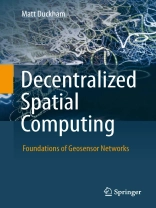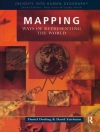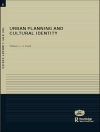Computing increasingly happens somewhere, with that geographic location important to the computational process itself. Many new and evolving spatial technologies, such as geosensor networks and smartphones, embody this trend. Conventional approaches to spatial computing are centralized, and do not account for the inherently decentralized nature of ‘computing somewhere’: the limited, local knowledge of individual system components, and the interaction between those components at different locations. On the other hand, despite being an established topic in distributed systems, decentralized computing is not concerned with geographical constraints to the generation and movement of information. In this context, of (centralized) spatial computing and decentralized (non-spatial) computing, the key question becomes: ‘What makes decentralized spatial computing special?’In Part I of the book the author covers the foundational concepts, structures, and design techniques for decentralized computing with spatial and spatiotemporal information. In Part II he applies those concepts and techniques to the development of algorithms for decentralized spatial computing, stepping through a suite of increasingly sophisticated algorithms: from algorithms with minimal spatial information about their neighborhoods; to algorithms with access to more detailed spatial information, such as direction, distance, or coordinate location; to truly spatiotemporal algorithms that monitor environments that are dynamic, even using networks that are mobile or volatile. Finally, in Part III the author shows how decentralized spatial and spatiotemporal algorithms designed using the techniques explored in Part II can be simulated and tested. In particular, he investigates empirically the important properties of a decentralized spatial algorithm: its computational efficiency and its robustness to unavoidable uncertainty. Part III concludes with a survey of the opportunities for connecting decentralized spatial computing to ongoing research and emerging hot topics in related fields, such as biologically inspired computing, geovisualization, and stream computing.The book is written for students and researchers of computer science and geographic information science. Throughout the book the author’s style is characterized by a focus on the broader message, explaining the process of decentralized spatial algorithm design rather than the technical details. Each chapter ends with review questions designed to test the reader’s understanding of the material and to point to further work or research. The book includes short appendices on discrete mathematics and SQL. Simulation models written in Net Logo and associated source code for all the algorithms presented in the book can be found on the author’s accompanying website.
Table des matières
Part I Foundations of Decentralized Spatial Computing.- Chap. 1 When Computing Happens Somewhere.- Chap. 2 Formal foundations.- Chap. 3 Algorithmic foundations.- Part II Algorithms for Decentralized Spatial Computing.- Chap. 4 Neighborhood-Based Algorithms.- Chap. 5 Location-Based Algorithms.- Chap. 6 Monitoring Spatial Change Over Time.- Part III Simulating Decentralized Spatial Algorithms.- Chap. 7 Simulating Scalable Decentralized Spatial Algorithms.- Chap. 8 Simulating Robust Decentralized Spatial Algorithms.- Chap. 9 Further Topics and Technologies.- References.- App. A Discrete Mathematics Primer
App. B Relational Database and SQL Primer.- Index.
A propos de l’auteur
Dr. Duckham is a Senior Lecturer at the Department of Geomatics, University of Melbourne, Australia. He also currently (2012) holds a prestigious Australian Research Council research fellowship, an ARC Future Fellowship, for research into ambient spatial intelligence. Previously he worked at the National Center for Geographic Information and Analysis (NCGIA) at the University of Maine, USA, as well as in the UK (Universities of Edinburgh, Leicester, Glasgow, and Keele). He is a coauthor with Prof. Mike Worboys of the significant advanced undergraduate/postgraduate textbook “GIS: A Computing Perspective’ (2nd ed., CRC Press). He has many further related journal and book publications, and he is the Editor‐in-Chief of the Journal of Spatial Information Science (JOSIS).












